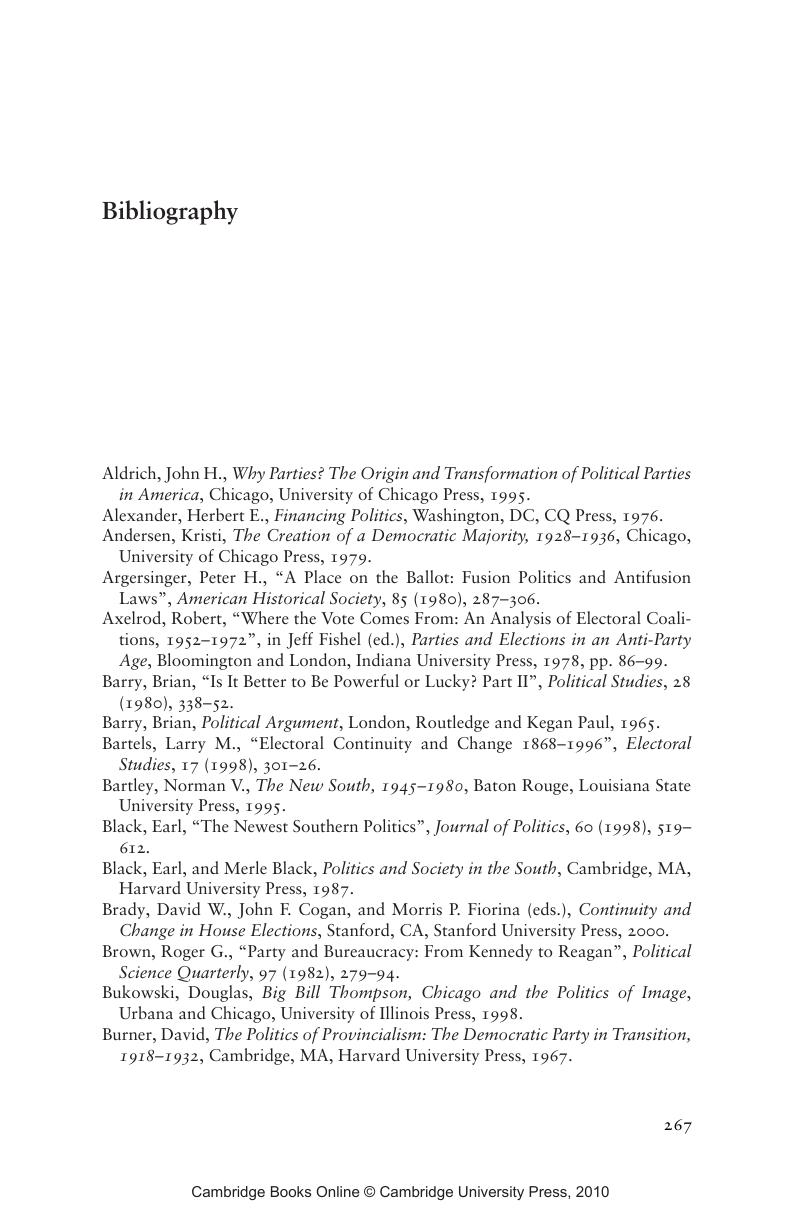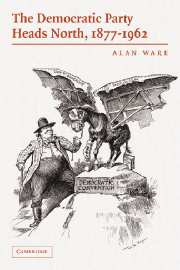Book contents
- Frontmatter
- Contents
- List of Tables
- Preface
- 1 The South and the Democratic Coalition
- 2 The Dynamics of Party Coalition Building
- 3 The Unstable Party Equilibrium, 1877–1896
- 4 The Re-assembling of the Democratic Coalition, 1896–1912
- 5 Woodrow Wilson and the Failure to Re-shape the Democratic Coalition, 1912–1920
- 6 How Could a Winning Democratic Coalition Be Constructed, 1920–1932?
- 7 Democratic Party Dominance or Restored Party Equilibrium, 1938–1952?
- 8 The Two Parties' Coalitions Come Under Threat, 1952–1962
- 9 Conclusions
- Appendix: Note on Data Sources
- Bibliography
- Index
- References
Bibliography
Published online by Cambridge University Press: 15 December 2009
- Frontmatter
- Contents
- List of Tables
- Preface
- 1 The South and the Democratic Coalition
- 2 The Dynamics of Party Coalition Building
- 3 The Unstable Party Equilibrium, 1877–1896
- 4 The Re-assembling of the Democratic Coalition, 1896–1912
- 5 Woodrow Wilson and the Failure to Re-shape the Democratic Coalition, 1912–1920
- 6 How Could a Winning Democratic Coalition Be Constructed, 1920–1932?
- 7 Democratic Party Dominance or Restored Party Equilibrium, 1938–1952?
- 8 The Two Parties' Coalitions Come Under Threat, 1952–1962
- 9 Conclusions
- Appendix: Note on Data Sources
- Bibliography
- Index
- References
Summary

- Type
- Chapter
- Information
- The Democratic Party Heads North, 1877–1962 , pp. 267 - 272Publisher: Cambridge University PressPrint publication year: 2006

